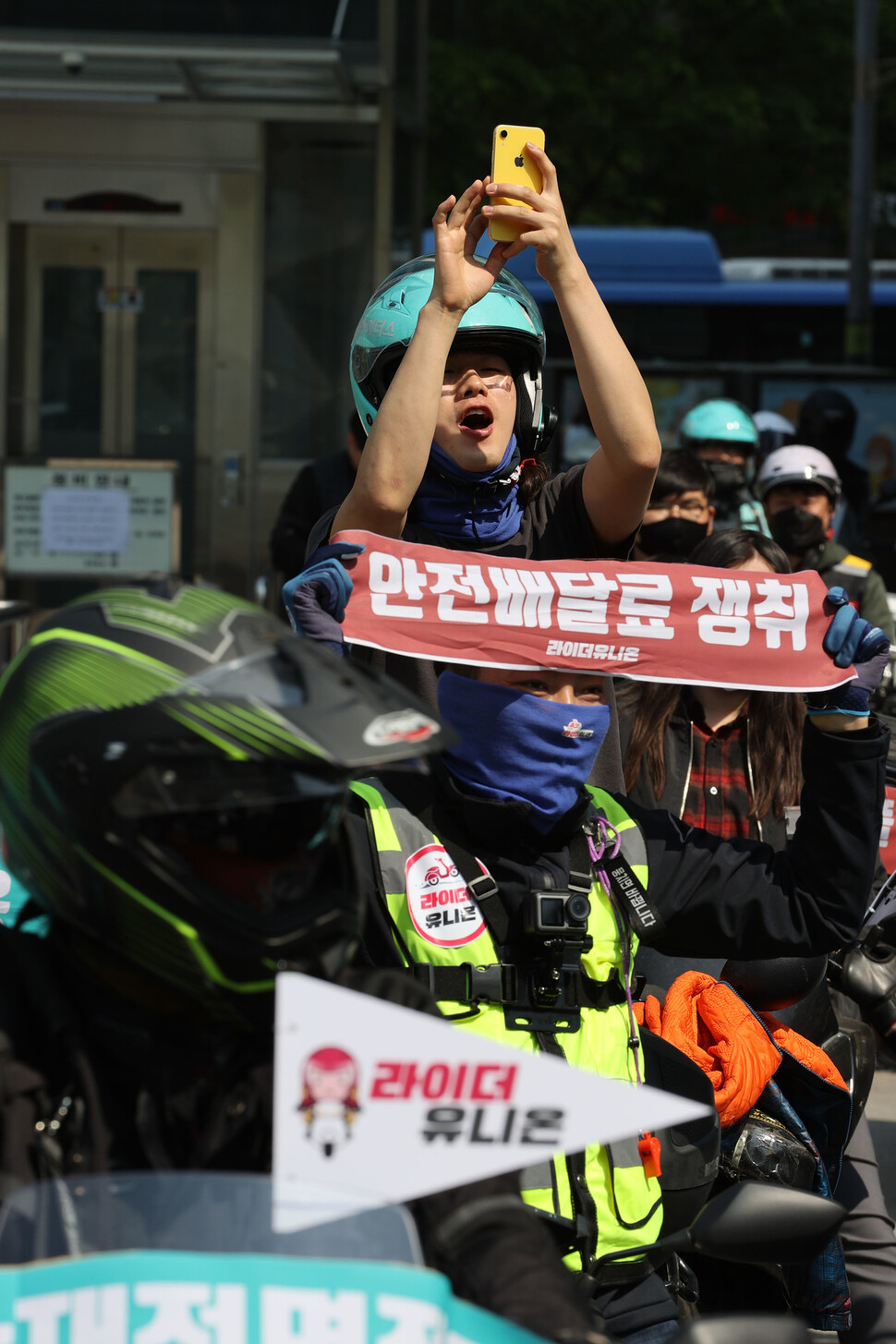Ahead of Labor Day in April of last year, members of the Rider Union are holding a general assembly near Gangnam Station in Seoul. By Lee Jung-ah, staff reporter
A bill was proposed for the first time in Korea that regulates workers who receive work or customers such as delivery and driving through an online platform as “platform workers,” and to protect them by obligating written contracts. However, there are concerns that it adheres to a lower level of protection than existing labor laws. On the 18th, the Democratic Party lawmaker Jang Cheol-min presented a representative proposal for the’Platform Worker Protection and Support Act’. In December of last year, the government announced that it will push ahead with a separate protection bill for platform workers by the first quarter of this year, but this initiative reflects this policy direction. According to a survey by the Korea Labor Institute last year, the number of platform workers in a broad sense who seeks customers or jobs through the platform is 1.79 million, accounting for 7.4% of the total employed. However, it is not properly protected by labor-related laws such as the Labor Standards Act because the employment relationship is not clear. This bill was initiated with the aim of resolving these’dead zones’. In terms of the contents, the platform operator or operator must sign a contract with the practitioner and provide the contract in writing. When a contract is changed or terminated, the content, reason, and timing shall be notified in writing 10 or 15 days prior to the date. When a worker is covered by social insurance, the rights are guaranteed in accordance with relevant laws and regulations. It also contains content that requires a fine of 5 million won or less to be imposed if the platform operator or operator violates the laws, such as terminating the contract without a justifiable reason. However, there is a great concern in the labor world that making a separate law in itself will prevent platform workers from being protected by existing labor laws. In May of last year, the Central Labor Commission decided that the’Tada’ driver was a worker under the Labor Standards Act, and there is already a growing trend in administrative agencies to recognize platform workers as workers. It is a worldwide move to protect platform workers under the existing labor law system, such as the’Guidelines on Transparent and Predictable Working Conditions’ enacted by the European Union in 2019 and the recent legislation in France. As if conscious of this controversy, the proposition put a rule in’Relationships with Other Laws’ that states, “Platform workers who fall under the Labor Relations Act will apply the Labor Relations Act first, and if this Act is advantageous, this Act will be applied” The government has also revealed its position that platform workers can receive not only separate laws but also labor laws. However, it is pointed out that in a situation where there is no system to judge the employment relationship of platform workers, it will eventually be’downward-leveling’, with only separate laws applied. Shin In-soo, director of the National Federation of Democratic Trade Unions, pointed out that “a law that provides only a low level of protection by presuming that platform workers are not workers but non-workers and self-employed.” Park Eun-jung, a professor at Inje University (Labor Law), pointed out that “the boundary between platform workers and specially employed (special high school) is also unclear, and it is questionable whether another separate legislative law is needed in a situation where the issue of protection of the labor law for special high school remains unresolved.” By Park Joon-yong, staff reporter
newsletter
Every morning, every Thursday day
A friendly newsletter that will save you from the flood of news.
Meet
